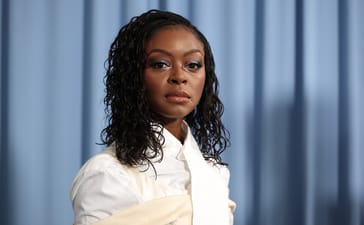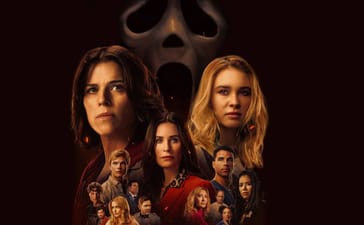The emo revival continues to grip the world, and few bands embody its dark, dramatic heart quite like My Chemical Romance. Last week, Gerard Way and co. announced their highly anticipated “Long Live The Black Parade” stadium tour, a celebration of their iconic 2006 album The Black Parade.
The tour, slated for mid-2025, sold a jaw-dropping 365,000 tickets within hours of release on November 15. But while fans rushed to secure their spot, the hefty ticket prices left many crying foul, reigniting debates over fair ticketing practices.
Selling Out Stadiums in Record Time
The tour, covering major cities across North America, is a monumental victory for the band and their fanbase. My Chemical Romance thanked their followers in a press release, saying, “Hours after tickets went on sale last Friday, fans acted quickly and 365,000 tickets were sold.” It’s an undeniable testament to the enduring power of The Black Parade, which continues to resonate with fans almost two decades after its release.
In response to overwhelming demand, the band has already added a second show at Dodger Stadium in Los Angeles on July 27, 2025. For fans across Australia and New Zealand, this is yet another reminder of the band’s global pull—and a glimmer of hope that an international tour might follow.
Sticker Shock: The Dynamic Pricing Debate
For many fans, the excitement of the tour announcement was quickly overshadowed by frustration over ticket costs. Prices ranged from a modest $63.50 to an eye-watering $695 (AUD $100-$1,100), with fans speculating that dynamic pricing—a controversial system where ticket prices rise based on demand—was in play.
Outrage quickly spilled onto social media, with one fan tweeting, “$695 is NASTY WORK COUNT YOUR DAYS MY CHEMICAL ROMANCE!!!!” Another lamented, “I love My Chemical Romance, but no way in hell will I ever be willing or able to pay $700 for a show.”
This isn’t the first time dynamic pricing has drawn criticism. Earlier this year, Oasis faced backlash for its use during ticket sales for their comeback tour, prompting calls for greater transparency. Experts have argued that fans deserve to know maximum ticket prices upfront to avoid unpleasant surprises.
Dynamic pricing isn’t universal, though. Taylor Swift notably refused to use it for her Eras tour, earning praise for keeping tickets more accessible. Whether My Chemical Romance had control over the decision remains unclear, but the backlash has left many fans demanding answers.
More Than Nostalgia: A Star-Studded Lineup
Adding to the excitement, My Chemical Romance revealed an eclectic range of support acts, including Violent Femmes, Garbage, Pixies, and Evanescence, each opening on different dates. The mix has sparked plenty of conversation online, with reactions ranging from pure enthusiasm to curiosity over the genre diversity.
Meanwhile, cryptic social media posts from the band hint that the tour might not be the only thing they’re working on. Teasers featuring words like “Opera” and “Good Boy” have fans speculating about potential new music, keeping the buzz alive
The View from Australia
For Aussie fans, the tour is both an inspiration and a cautionary tale. While there’s hope that My Chemical Romance will bring their Black Parade celebration Down Under, the ticketing issues surrounding their North American run have sparked concern. The controversial practice of dynamic pricing, which has left fans in the US grappling with skyrocketing costs, is something Australians are increasingly familiar with—but it might not have a future here.
Just last month, the Australian federal government announced a crackdown on “dodgy” trading practices, including dynamic pricing, as part of sweeping consumer protections. Prime Minister Anthony Albanese described the move as cost-of-living relief, noting that practices like hidden fees and sudden price hikes “put more pressure on the cost of living and need to stop.” The proposed legislation would ban dynamic pricing for events like concerts, tackling a fee structure that has sparked outrage among fans of bands like Green Day and Pearl Jam.
This push for transparency offers some hope that Australian fans could avoid the same pitfalls if My Chemical Romance tours here. But it also raises questions about how live music pricing will evolve globally, especially for high-demand events.
As The Black Parade marches on in North America, Aussie fans are watching closely. The band’s success is a reminder of their enduring impact—but so is the debate over how accessible live music should be. Whether the tour makes its way Down Under or not, one thing’s clear: fans are demanding more than just tickets—they’re calling for fairer systems to access the music they love.










